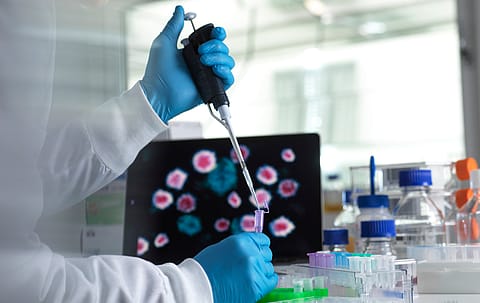Waive off clinical trials for biosimilars on WHO, UK format, says plea to Centre
Advocacy groups say move will ensure accessibility and affordability of mABs and other bio-therapeutics in the country.

A group of patient advocacy organisations want India to follow the recent regulatory changes in the UK and do away with the clinical trial requirement for the regulatory approval of biosimilars (generic biotech medicines) in the country.
Citing a draft guideline prepared by the World Health Organisation (WHO) and the changes in UK’s biosimilar regulation, the groups have asked Prime Minister Narendra Modi to constitute a committee of experts to redraft India’s biosimilar licensing guidelines. The signatories represent organisations like Campaign for Access to Medicines, Devices and Diagnostics, India, World Without GNE Myopathy, Cure SMA Foundation of India, Cancer Patients Aid Association and Advocacy in Blood Genetic Disorders.
According to the advocacy groups, India has only 36 registered biosimilar drugs while the number of monoclonal anti-bodies (mAB) including the non-originator production (bio-similar) registered in EU and the US are 120 and 112 respectively. A decision to do away with the clinical trial requirement will reduce the cost of regulatory approval significantly and bring down the price of of bio-therapeutics such as mAbs and others that are used to treat life-threatening diseases such as cancer, Covid-19, organ transplantation, rare diseases such as gaucher disease, spinal muscular atrophy, Hurler syndrome, Wolman disease, juvenile idiopathic arthritis, Hodgkin lymphoma etc.
Incidentally, the WHO model list of essential medicines contains 12 mABs. The world’s six top selling brands are mABs and 80% of global mAB market is concentrated in USA, Canada and Europe.
“The primary reason for the lack of competition in mAB market is the entry barrier due to current regulatory framework as per the current regulation of biosimilars. Carrying out comparative clinical trials requires huge financial resources and time," said the letter, adding that that's why only companies with deep pockets can enter development of biosimilar mABs and other bio-therapeutic products.
"Further, the expenditure involved in the development of biosimilars makes it costly and compromises affordable access. In the case of a generic version of a small molecule, the first generic producer could bring down the price 90% lower than that of originator. The entry of a biosimilar could reduce the price only to 40-60%”, the group’s letter to the Prime Minister argued.
The advocacy groups said that the requirement of comparative clinical trial has been questioned by the scientists across the world and this led to the UK decision. “The newly adopted biosimilar regulation of UK titled ‘Guidance on Licensing Biosimilar Products’ has done away with comparative clinical trial for the development of biosimilar." Similarly, the WHO is reforming the ‘Guidelines on evaluation of similar biological products (SBP)’, they say.
Recommended Stories
"The consultation of the second draft of the WHO SBP guideline is currently under process and the draft guideline recommends doing away with the comparative clinical trial requirement, to assess the efficacy of the biosimilar. These developments have proved beyond doubt that biosimilar and other bio-therapeutic products with assured quality, efficacy and safety can be developed and marketed without comparative clinical trials”, the groups point out.
They want the Prime Minister to consider the public health importance of mABs and other bio-therapeutics and ensure its accessibility and affordability through regulatory changes that facilitate competition. The copies of the letter have also been mailed to the Health and Commerce ministries, the Drugs Controller General of India and the National Pharmaceutical Pricing Authority.